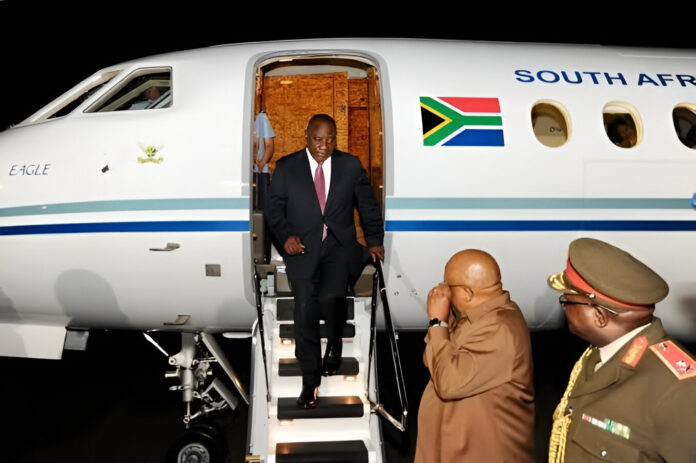Ramaphosa's Future at the Helm of the ANC: A Party Divided
President Cyril Ramaphosa's tenure as leader of the African National Congress (ANC) is under intense scrutiny, as factions within the party clash over his future. While Ramaphosa may be considering an early departure from his top position, his supporters are vehemently opposed, fearing the potential ramifications for the party's stability and electoral prospects.
According to well-placed ANC sources, the president had contemplated voluntarily resigning after the recent G20 summit, a move that reportedly caught the party off guard. However, this plan has met with strong resistance from his loyalists, who believe his sudden exit would not only destabilise the party but also leave them in a precarious position.
One source articulated the concerns of Ramaphosa's supporters, stating, "There is fear that without Cyril, the party's performance would even worsen next year [in the local government election] because, rightly or wrongly, that would be perceived by the electorate as an existence of infighting within the ANC." The source further emphasised the importance of unity, noting that "voters don't like a party that has leadership squabbles; they retreat by either staying at home or voting for other parties. That is not what we want."
Ramaphosa's supporters are advocating for him to remain in office and complete his second and final term, which is set to conclude in December 2027. They aspire to see him break the pattern of ANC presidents being recalled before the end of their terms, a fate that befell former presidents Thabo Mbeki and Jacob Zuma. The ANC views putting an end to this trend as an integral part of its renewal process.
Conversely, Ramaphosa's adversaries within the party are eager for him to step down or be removed at the upcoming National General Council (NGC) next month. Their aim is to have a different leader deliver the ANC's January 8th statement.
Adding to the complexity, some members have proposed dissolving the entire national executive committee and establishing an interim national task team, led by a new leader or convener and a coordinator or secretary.
It is crucial to note that the NGC is not a platform for electing leadership. Unlike the national conference, which serves as the party's highest decision-making body with representation from branches and other structures, the NGC is a mid-term conference focused on reviewing progress in policy implementation and charting a course forward for the party and the country.
The ANC has experienced a decline in electoral performance since the 2009 election, following Jacob Zuma's election at the Polokwane national conference in late 2007. Ramaphosa's leadership has not reversed this trend; instead, the party's support plummeted from 57% in 2019 to 40% in last year's national election.
Political analyst Professor Ntsikelelo Breakfast, who accurately predicted the ANC's electoral decline in May last year, anticipates a further slump in future polls.
While discussions about Ramaphosa's successor are still in their early stages, a high-level party source indicated a general sentiment that deputy president Paul Mashatile is not a suitable candidate for the presidency due to numerous allegations of corruption.
The source stated, "You would rather have the devil you know than the one you don't know. People are used to Cyril… we need someone who will elevate the ANC, not someone who will bring it further down."
At present, the identity of the next president remains uncertain. However, several individuals have been mentioned as potential contenders, including party national chair Gwede Mantashe, secretary-general Fikile Mbalula, and Gauteng premier Panyaza Lesufi.
The party's first deputy secretary-general, Nomvula Mokonyane, has already expressed her intention to contest the position, while former minister Naledi Pandor has not been ruled out as a possibility.
Historically, the position has been contested by multiple candidates, with as many as six in some instances. However, some candidates often withdraw or fail to secure sufficient nomination support.
Despite the challenges and divisions, Ramaphosa's recent accomplishments, such as successfully hosting the G20 summit and advocating for the interests of the global south and Africa, could bolster his position. He has received praise both internally and externally for his handling of the summit.
Furthermore, Ramaphosa has been credited with bringing stability to the government of national unity, with many ANC members fearing its collapse without his leadership. These factors may strengthen his case for remaining at the helm of the ANC.

Follow Us on Twitter











